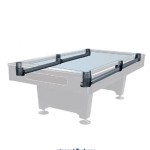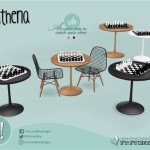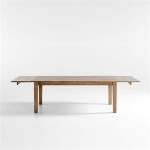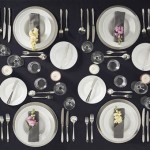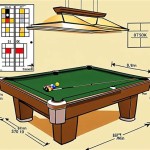Pool Table Hard Covers: Protection, Aesthetics, and Functionality
A pool table is a significant investment, representing both a source of recreation and, often, a statement piece within a home or establishment. Protecting this investment from damage, dust, and accidental spills is paramount to ensuring its longevity and maintaining its pristine condition. Pool table hard covers offer a robust solution to these challenges, extending beyond simple dust protection to provide a durable barrier against a variety of potential hazards.
Hard covers for pool tables are typically constructed from rigid materials like wood, composite materials, or durable plastics. They are designed to fit snugly over the entire playing surface and rails, creating a protective shell. Unlike soft covers, which primarily guard against dust and minor scratches, hard covers can withstand considerable weight and impact, safeguarding the table from more serious damage. This is particularly important in environments with children, pets, or frequent social gatherings where accidents are more likely to occur.
The selection of a suitable pool table hard cover requires careful consideration of several factors, including the table's dimensions, the cover's material, its weight capacity, and any additional features that may enhance its functionality. A well-chosen hard cover can significantly extend the life of a pool table, preserve its aesthetic appeal, and provide added utility to the space it occupies.
Key Benefits of Using a Pool Table Hard Cover
Using a hard cover for a pool table offers a multitude of benefits related to protection, functionality, and aesthetics. These advantages extend beyond simple dust prevention, contributing to the long-term preservation of the table and enhancing its usability.
One of the primary benefits is superior protection against physical damage. Hard covers are designed to withstand significant impact, preventing scratches, dents, and other forms of damage that can occur from accidental bumps, spills, dropped objects, or even pets jumping onto the table. This level of protection is particularly valuable in homes with children or pets, where the risk of accidental damage is higher.
Hard covers also provide a barrier against spills and moisture, which can severely damage the delicate felt surface of a pool table. Liquids can stain the felt, warp the underlying wood, and promote the growth of mold or mildew. A hard cover acts as a shield, preventing liquids from reaching the playing surface and preserving its integrity. This is especially important in environments where food and beverages are commonly consumed near the pool table.
Beyond physical protection, hard covers also help to maintain the cleanliness of the pool table. They effectively block dust, dirt, and other airborne particles from settling on the felt, reducing the frequency of cleaning and minimizing the risk of abrasive particles scratching the surface during play. This helps to preserve the smooth playing surface and ensure consistent ball roll.
In addition to protection and cleanliness, hard covers can also offer functional benefits by transforming the pool table into a usable surface for other activities. Many hard covers are designed to support significant weight, allowing the pool table to be used as a dining table, buffet surface, game table, or even a temporary workspace. This versatility can be especially valuable in smaller homes or apartments where space is limited.
Finally, hard covers can enhance the aesthetic appeal of a pool room. They are available in a variety of styles, finishes, and colors to complement the décor of the room. A well-chosen hard cover can create a clean, polished look and transform the pool table into a more versatile and integrated piece of furniture.
Material Considerations for Pool Table Hard Covers
The material used in the construction of a pool table hard cover significantly impacts its durability, weight capacity, aesthetic appeal, and overall cost. Choosing the right material is crucial for ensuring that the cover effectively protects the table and meets the specific needs of the user.
Wood is a popular choice for pool table hard covers, offering a classic and elegant look. Wood covers can be constructed from various types of wood, including solid hardwoods like oak, maple, and cherry, as well as engineered wood products like plywood and MDF (Medium-Density Fiberboard). Solid hardwoods are known for their strength and durability, but they can also be more expensive and heavier than engineered wood products. Engineered wood products offer a more affordable and lightweight alternative, but they may not be as resistant to moisture or impact damage.
Composite materials, such as fiberglass and carbon fiber, are another option for pool table hard covers. These materials are known for their high strength-to-weight ratio, making them both durable and lightweight. Composite covers are also resistant to moisture and warping, making them a good choice for environments with high humidity. However, composite covers can be more expensive than wood or plastic covers.
Plastic is a more affordable option for pool table hard covers. Plastic covers are typically made from durable polymers like polyethylene or polypropylene. These materials are lightweight, waterproof, and easy to clean. However, plastic covers may not be as strong or aesthetically appealing as wood or composite covers. They are also more susceptible to scratching and fading over time.
In addition to the primary material, the finish of the pool table hard cover is also an important consideration. A durable finish can protect the cover from scratches, stains, and UV damage. Common finishes include lacquer, varnish, polyurethane, and melamine. The choice of finish will depend on the material of the cover and the desired aesthetic.
The hardware used to secure the pool table hard cover is also an important factor. Hinges, latches, and handles should be made from durable materials like stainless steel or brass to ensure that they can withstand repeated use and exposure to the elements. The hardware should also be designed to be easy to use and secure, preventing the cover from accidentally opening or detaching.
Factors to Consider When Choosing a Pool Table Hard Cover
Selecting the right pool table hard cover involves considering several key factors to ensure it meets specific needs and preferences. These factors range from precise measurements and compatibility to material durability and aesthetic integration.
The size and dimensions of the pool table are paramount considerations. A hard cover must fit snugly and securely over the entire playing surface and rails to provide adequate protection. Taking accurate measurements of the table is essential to ensure a proper fit. Standard pool table sizes include 7-foot, 8-foot, and 9-foot tables, but custom sizes are also available. It is crucial to select a hard cover that is specifically designed for the correct table size. Using a cover that is too small will leave portions of the table exposed, while a cover that is too large will be loose and ineffective.
The weight capacity of the hard cover is another important consideration, especially if the cover will be used as a surface for other activities. A cover with a low weight capacity may not be able to support the weight of food, beverages, or other items, potentially leading to damage or collapse. It is important to choose a hard cover with a weight capacity that is sufficient for the intended use. Manufacturers typically specify the weight capacity of their hard covers, so it is important to review this information carefully before making a purchase.
The style and design of the hard cover should also be considered, taking into account the décor of the room and personal preferences. Hard covers are available in a variety of styles, ranging from simple and functional to elaborate and decorative. Some covers are designed to blend seamlessly with the surrounding furniture, while others are designed to make a statement. Choosing a hard cover that complements the overall aesthetic of the room can enhance its visual appeal.
Ease of use and storage are practical considerations. A hard cover should be easy to install, remove, and store. Some covers are designed to fold in half or in quarters for easier storage, while others require a dedicated storage space. It is important to choose a cover that is convenient to use and store, especially if it will be frequently removed and replaced.
Finally, the price of the hard cover should be considered in relation to its features and benefits. Hard covers range in price from relatively inexpensive plastic covers to more expensive wood or composite covers. It is important to set a budget and choose a cover that offers the best value for the money. Consider the long-term benefits of investing in a high-quality hard cover, such as increased protection, enhanced functionality, and improved aesthetics. A well-chosen hard cover can protect the pool table for years to come, making it a worthwhile investment.

Pool Billiard Table Custom Hard Cover Protective Pads Tpc

Pool Table Covers Robertson Billiards Dining Top

Billiard Table Hard Top Cover Supports Pool Covers Dining

Pool Table Protective Fitted Cover Blatt Billiards

Standard Size Pool Table Hard Top Cover 55 X 99 Dining Covers

Conversion Dining Top

6ft Reversible Table Hard Top Radley Pool Tables

Pool Table Cloth Care Guide Liberty

Top Cover Damson Edge Llc

High Quality Marine Grade Vinyl Cover For Pool Tables

